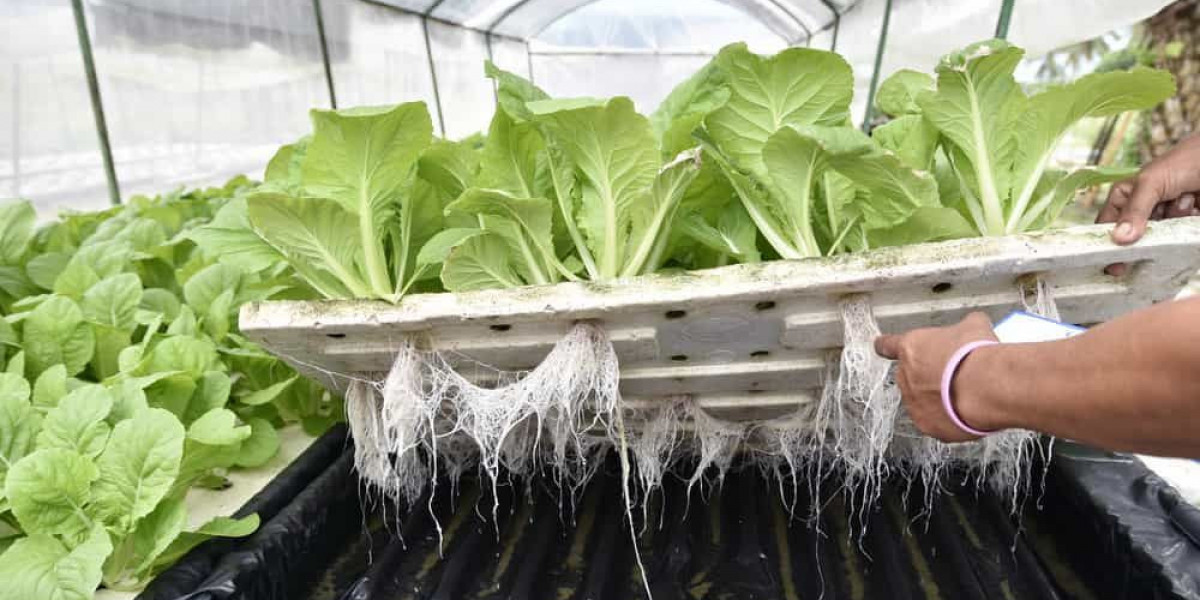Introduction
Hydroponics is gaining traction in developing countries as a viable solution for food production in regions facing agricultural challenges. With limited arable land, water scarcity, and climate change impacts, hydroponic farming offers a sustainable alternative to traditional agriculture. This article explores the opportunities and challenges of hydroponics market in developing nations and its potential to revolutionize food security.
Opportunities for Hydroponics in Developing Countries
Hydroponics presents several benefits that make it an attractive option for developing nations:
Efficient Land Use: Hydroponic systems do not require fertile soil, allowing food production in urban areas, deserts, and degraded lands.
Water Conservation: Hydroponic farming uses up to 90% less water than conventional agriculture, making it ideal for water-scarce regions.
Increased Crop Yields: Controlled environments optimize growth conditions, leading to higher yields and consistent food production.
Climate Resilience: Hydroponic systems are less affected by extreme weather conditions, ensuring stable food supply despite climate change challenges.
Urban Farming Potential: Cities with limited farmland can adopt hydroponics to grow fresh produce locally, reducing dependence on imports.
Job Creation and Economic Growth: The hydroponics industry can create employment opportunities in agriculture, technology, and supply chain sectors.
Challenges Facing Hydroponics Adoption
Despite its advantages, hydroponics faces several challenges in developing countries:
High Initial Investment: The cost of setting up hydroponic systems, including equipment and technology, can be prohibitive for small-scale farmers.
Limited Technical Knowledge: Farmers may lack expertise in managing hydroponic systems, requiring training and education programs.
Energy Dependency: Some hydroponic systems rely on artificial lighting and climate control, which can be costly in areas with unreliable electricity.
Access to Financing: Limited access to credit and financial support can hinder the widespread adoption of hydroponics among small farmers.
Regulatory and Policy Gaps: Inconsistent policies and lack of government support can slow the development of the hydroponics market.
Key Initiatives and Success Stories
Several organizations and initiatives are promoting hydroponics in developing nations:
FAO (Food and Agriculture Organization) - Supports hydroponics for food security in arid regions.
Eden Green Technology - Implements hydroponic solutions in Africa to boost agricultural productivity.
AgriTech Startups - Companies in Asia and Latin America are introducing cost-effective hydroponic systems tailored for small farmers.
Government Programs - Some governments offer subsidies and grants to promote hydroponic farming in urban and rural areas.
Future Outlook
With increasing investments, technological advancements, and policy support, hydroponics has the potential to transform agriculture in developing countries. Innovations in solar-powered hydroponics, low-cost systems, and community-based farming initiatives will drive further growth in this sector.
Conclusion
Hydroponics offers a sustainable and efficient solution to food production challenges in developing countries. While barriers such as cost, knowledge, and infrastructure exist, ongoing efforts to address these challenges will help hydroponic farming become a mainstream agricultural practice. With the right support, hydroponics can play a crucial role in ensuring food security and economic development in emerging economies.









